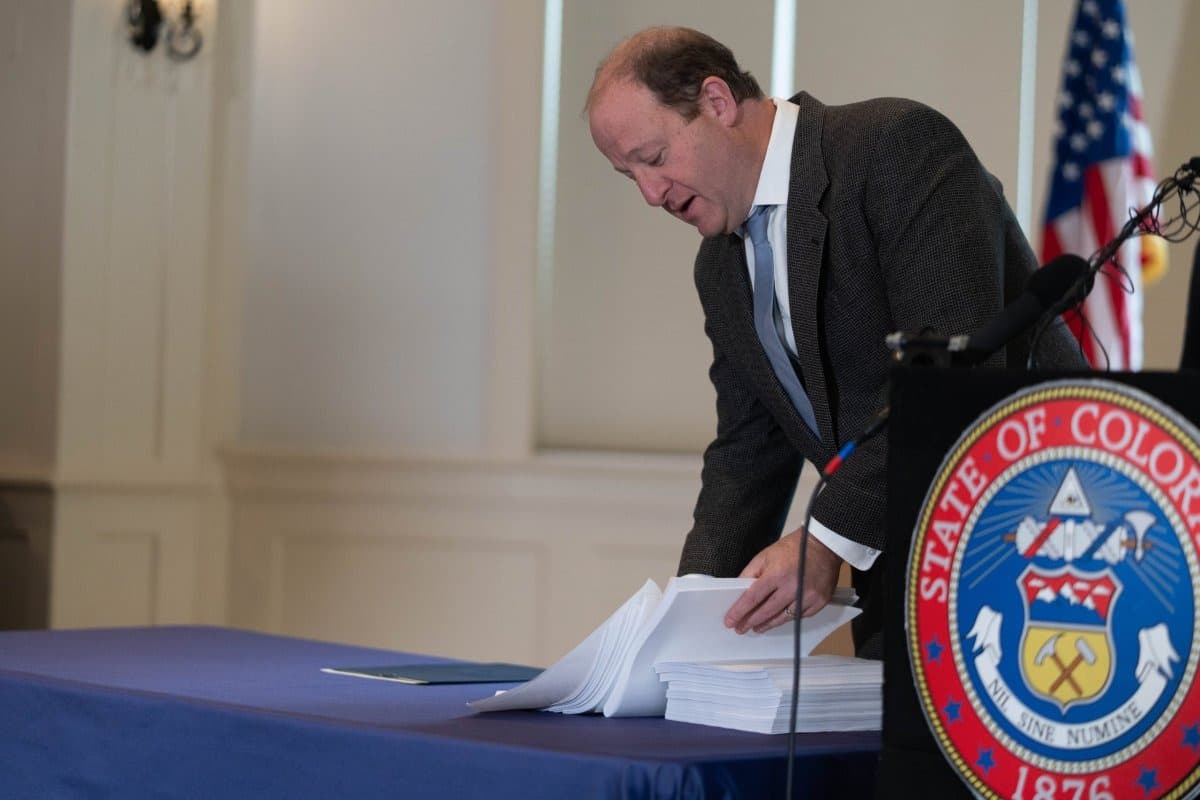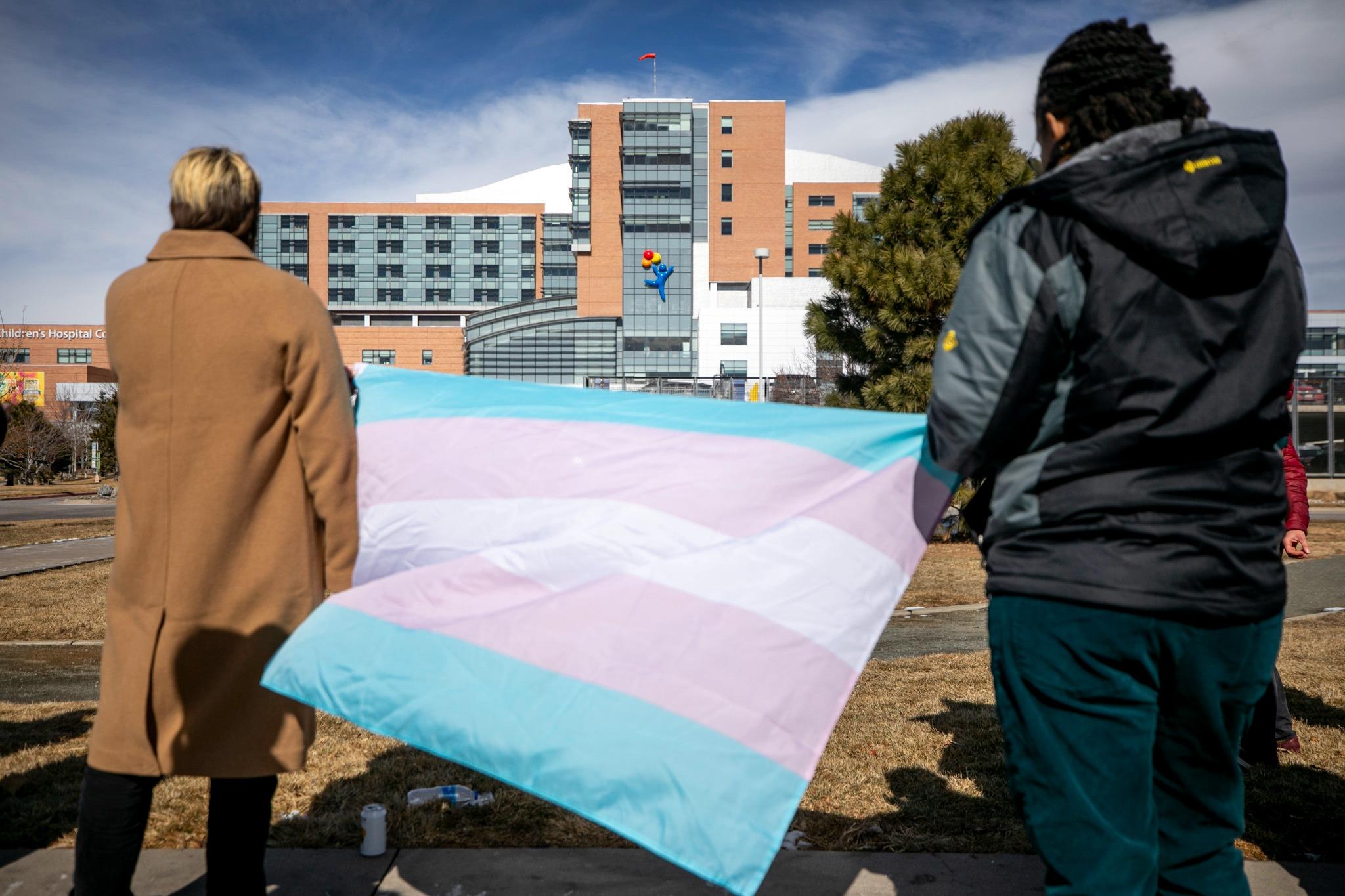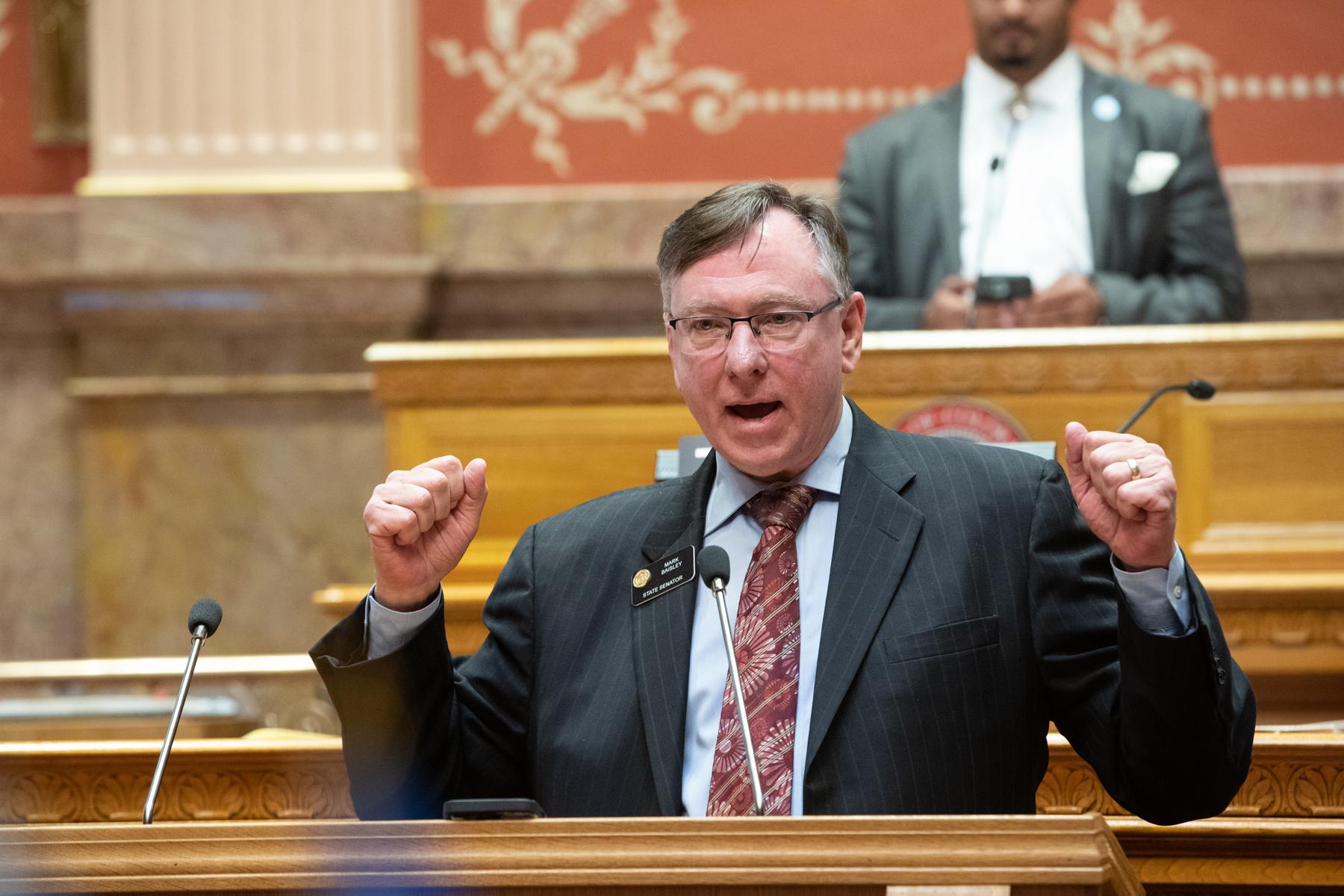
This story was produced as part of the Colorado Capitol News Alliance. It first appeared at coloradosun.com.
Five years ago, legislative Democrats and their allies outside the Capitol warned voters against passing Proposition 116, a 2020 ballot measure that permanently cut income taxes by over $150 million a year.
Teachers union leaders called it “flat-out irresponsible.”
Democratic lawmakers predicted it would mean more cuts to schools, health care and transportation.
Two years later, progressives sounded the alarm again when conservatives put another income tax cut on the ballot, this time with an annual price tag north of $400 million.
“We shouldn’t be making permanent tax cut decisions based on a couple of fat years. Cutting the tax rate now would be foolhardy at best and truly damaging for many Coloradans,” Angela Cobian and Stephen Berman of the Bell Policy Center wrote in a Colorado Sun op-ed.
Both times, voters shrugged off the concerns, backing the tax cuts in landslide votes. Gov. Jared Polis, too, bucked his party and cheered on the tax reductions.
Yet the budget appeared unaffected. State revenue kept growing by more than the state could spend under the Taxpayer’s Bill of Rights spending cap. And Democrats’ warnings about cuts to public services looked overblown.
Until now.
Due to sweeping federal tax cuts signed into law last month by President Donald Trump, Colorado expects to find itself below the TABOR cap for the first time since 2020. That has left lawmakers searching for as much as $800 million in spending cuts or new revenue to close a budget hole created just days into the new fiscal year.
History repeating itself
The TABOR cap limits state spending to the combined rate of population growth and inflation. When tax collections grow faster than the cap, the state has to refund the difference to taxpayers. So when the surplus is large enough, cutting taxes doesn’t affect what the state can spend on services. Taxpayers just pay less up front, and the state owes fewer refunds later.
Trouble is, that’s only true as long as the state collects enough tax dollars to stay above the cap.
“We do these short-sighted things, because some groups want to shrink government,” former state Rep. Chris DeGruy Kennedy, the president of the Bell Policy Center, told The Sun in an interview. The tax cuts weren’t that impactful while the state was over the TABOR cap, he said, “but now, we’re seeing the damage from this.”
Polis defended the tax cuts in a statement to The Sun.
“The income tax cuts save every taxpayer money and are what helped grow our economy,” Polis said. “Without them, Colorado would likely have worse unemployment and our economy wouldn’t be growing as fast.”
Ally Sullivan, a spokesperson for the governor’s office, added that the state’s current budget crunch was caused by the Trump administration’s tax bill, not state actions.
“If not for the federal administration blowing a $1.2 billion hole in the budget in the form of corporate tax giveaways, Colorado would continue to have a TABOR surplus and people would be getting a refund check, but now Trump and Congressional Republicans have ripped that out of people’s wallets,” the statement said.
It’s not the first time that statewide income tax cuts passed at a time of TABOR surpluses exacerbated a fiscal crunch shortly thereafter.
With large surpluses to work with in 1999 and 2000, Colorado lawmakers passed two rounds of income tax cuts, slashing the rate from 5% to 4.63%, which is where it stayed until 2020’s Proposition 116.
In the intervening years, TABOR surpluses were rare. Instead, Colorado faced repeated budget crises brought on by two recessions, leading to deep cuts to higher education and the eventual creation of a decade-long K-12 school funding shortfall, known as the budget stabilization factor.
If history repeats itself, we can’t say we weren’t warned.
“History speaks loudly and clearly on how this will play out,” Cobian and Berman wrote in 2022. “In years when revenues under existing rates drop and we are below the TABOR cap, we will sorely miss those dollars.”
The silver lining: Unlike the 2000s, Colorado Legislative Council staff expect the TABOR surplus to return soon. Their latest projections call for $760 million in taxpayer refunds for the budget year that starts July 2026.
Lawmakers bear some responsibility
Voters aren’t the only ones who cut taxes in recent years.
State lawmakers slashed local property tax rates repeatedly in response to soaring home values — and to protect against even deeper cuts at the ballot box. The property tax cuts don’t affect how much tax revenue the state collects, but they still contribute to the budget crisis the state now faces.
When property taxes fall, it reduces local funding for schools and forces the state to pick up the costs. Last year alone, lawmakers cut more than $260 million in school district taxes, shifting those dollars onto a state budget that was already stretched beyond its means.
On the other hand, lawmakers also took steps to prevent a repeat of what happened after the tax cuts in 1999 and 2000.
In 2024, the Democratic majority faced pressure from Polis and legislative Republicans to cut income taxes while the TABOR surplus was measured in the billions of dollars. But legislative Democrats insisted that the tax cuts be temporary, and only kick in when the state has a large enough TABOR surplus to afford it without cuts to services.
Last tax year, the income tax rate fell temporarily to 4.25%, shaving over $450 million off income tax bills. This year, it’s back up to 4.4% — and after the federal tax cuts, legislative forecasters don’t expect the provision to cut taxes again until the 2027 tax year.
The legislature passed a law in 2021 requiring that ballot measures cutting taxes tell voters which state services would be cut. Democrats also referred Proposition GG to voters, who passed it into law. As a result, tax-related ballot questions now have to provide a detailed table showing how they would affect people at different income levels.
Conservatives chafed at the changes. And Advance Colorado, a political nonprofit that has backed several efforts to cut taxes, sued unsuccessfully to block the 2021 law from taking effect, arguing that it could require them to include language in ballot questions that might not be true.
“I think those ideas will help our voters get the facts that they need to understand what the real risks of these tax cuts are,” said DeGruy Kennedy, a Lakewood Democrat who sponsored the 2021 measure.

Colorado Capitol Alliance
This story was produced by the Capitol News Alliance, a collaboration between KUNC News, Colorado Public Radio, Rocky Mountain PBS, and The Colorado Sun, and shared with Rocky Mountain Community Radio and other news organizations across the state. Funding for the Alliance is provided in part by the Corporation for Public Broadcasting.









